I have a list of URIs of images from essentially a Wordpress site. I want to be able to have a script to get their file sizes (mb, kb, GB) from just using the URIs. I don't have access to this server-wise and need to add the sizes to a Google sheet. This seems like the fastest way to do it as there are over 5k images and attachments.
However when I do this in Python
>>> import requests
>>> response = requests.get("https://xxx.xxxxx.com/wp-content/uploads/2017/05/resources.png")
>>> len(response.content)
3232
I get 3232 bytes but when I check in Chrome Dev Tools, it's 3.4KB
What is being added? Or is the image actually 3.4KB and my script is only checking content-length?
Also, I don't want to check using the Content-Length header as some of the images may be large and chunked so I want to be sure I'm getting the actual file size of the image.
What is a good way to go about this? I feel like there should be some minimal code or script I could run.

